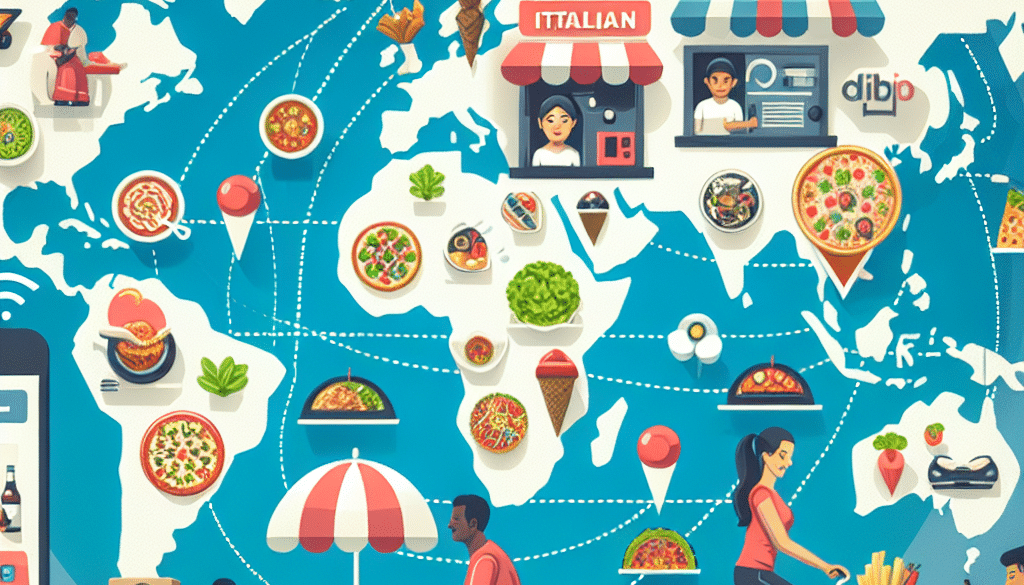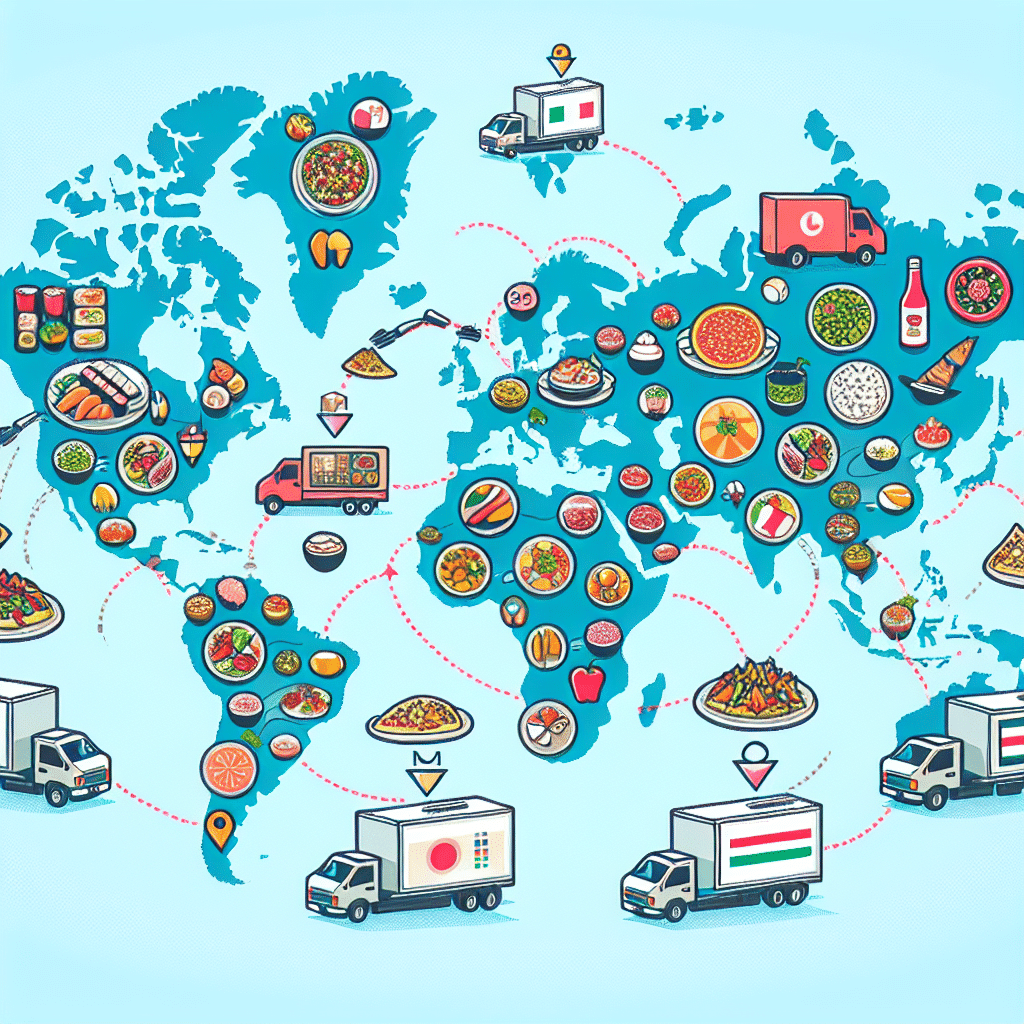The Global State of Foodservice Delivery
-
Table of Contents
- Foodservice Delivery Revolution: A Global Perspective
- The Growth of Foodservice Delivery
- Consumer Behavior and Preferences
- Impact of COVID-19 on Foodservice Delivery
- Challenges Facing the Foodservice Delivery Industry
- Case Studies and Success Stories
- The Future of Foodservice Delivery
- Conclusion
- Enhance Your Foodservice Offerings with ETChem’s Protein Products
Foodservice Delivery Revolution: A Global Perspective
The foodservice delivery industry has undergone a seismic shift in recent years, transforming from a convenience to a necessity for many consumers around the globe. The rise of digital platforms, changing consumer behaviors, and the impact of the COVID-19 pandemic have all played pivotal roles in shaping the current state of foodservice delivery. This article delves into the intricacies of this booming industry, exploring its growth, challenges, and future prospects.
The Growth of Foodservice Delivery
The foodservice delivery market has seen exponential growth, with technological advancements and increased smartphone penetration being significant drivers. The convenience of ordering food with just a few taps on a screen has appealed to a broad audience, from busy professionals to families seeking variety in their meals.
- Market Expansion: The global food delivery market size was valued at USD 150 billion in 2021 and is expected to continue its upward trajectory.
- Technological Integration: Innovations such as GPS tracking, AI for personalized recommendations, and seamless payment systems have enhanced the customer experience.
- Diverse Offerings: From fast food to gourmet meals, the variety of options available for delivery has expanded significantly.
Consumer Behavior and Preferences
Consumer preferences have shifted towards convenience and variety, with many opting for delivery services to save time and explore new cuisines. Health-conscious consumers are also seeking out delivery options that offer nutritious and tailored meal choices.
- Convenience Seeking: The busy lifestyle of modern consumers has made food delivery an attractive option for those looking to save time.
- Health and Wellness: An increasing number of delivery services now cater to health-conscious consumers, offering organic, vegan, and specific dietary meals.
- Experience Over Price: Many consumers are willing to pay a premium for the experience and convenience that food delivery services provide.
Impact of COVID-19 on Foodservice Delivery
The COVID-19 pandemic has been a catalyst for the foodservice delivery industry, with lockdowns and social distancing measures leading to a surge in demand. Restaurants that previously did not offer delivery services pivoted to include them as a means of survival.
- Surge in Demand: The pandemic led to a significant increase in food delivery orders as consumers avoided dining out.
- Adaptation by Restaurants: Many restaurants adapted their business models to focus on delivery and takeout services.
- Hygiene and Safety: Delivery services implemented contactless delivery and enhanced hygiene protocols to ensure customer safety.
Challenges Facing the Foodservice Delivery Industry
Despite its growth, the foodservice delivery industry faces several challenges that could impact its sustainability and profitability.
- Competition: The market is becoming increasingly saturated, with numerous players vying for market share.
- Regulatory Hurdles: Governments around the world are scrutinizing the gig economy and the status of delivery workers, leading to potential regulatory changes.
- Profitability Concerns: High commission fees and operational costs have raised concerns about the long-term profitability of food delivery services.
Case Studies and Success Stories
Several companies have emerged as leaders in the foodservice delivery industry, adapting to challenges and setting trends.
- DoorDash: In the United States, DoorDash has become a dominant player by expanding its services to include grocery and convenience store deliveries.
- Deliveroo: UK-based Deliveroo has invested in “dark kitchens” that are dedicated solely to fulfilling online orders, optimizing delivery efficiency.
- Meituan Dianping: China’s Meituan Dianping has leveraged AI and big data to optimize delivery routes and reduce delivery times.
The Future of Foodservice Delivery
The future of foodservice delivery looks promising, with trends indicating further growth and innovation. Automation, drone delivery, and sustainability are likely to be key focus areas.
- Automation: The use of robots and drones for delivery is being tested, with the potential to revolutionize the industry.
- Sustainability: Eco-friendly packaging and reducing carbon footprints are becoming important considerations for delivery services.
- Personalization: Leveraging customer data to offer personalized menus and recommendations will enhance the user experience.
Conclusion
The global state of foodservice delivery is one of rapid growth, innovation, and adaptation. While the industry faces challenges such as intense competition and regulatory scrutiny, the demand for convenience, variety, and personalized experiences continues to drive its expansion. As the industry evolves, it will be crucial for players to focus on sustainability, technological advancements, and customer-centric strategies to remain competitive and profitable.
Enhance Your Foodservice Offerings with ETChem’s Protein Products
For foodservice businesses looking to expand their menu offerings with high-quality protein options, ETChem’s range of collagen products presents an excellent opportunity. Their diverse selection of collagens can be seamlessly integrated into various dishes, enhancing both the nutritional value and appeal of your foodservice delivery options.
About ETChem:
ETChem, a reputable Chinese Collagen factory manufacturer and supplier, is renowned for producing, stocking, exporting, and delivering the highest quality collagens. They include marine collagen, fish collagen, bovine collagen, chicken collagen, type I collagen, type II collagen and type III collagen etc. Their offerings, characterized by a neutral taste, instant solubility attributes, cater to a diverse range of industries. They serve nutraceutical, pharmaceutical, cosmeceutical, veterinary, as well as food and beverage finished product distributors, traders, and manufacturers across Europe, USA, Canada, Australia, Thailand, Japan, Korea, Brazil, and Chile, among others.
ETChem specialization includes exporting and delivering tailor-made collagen powder and finished collagen nutritional supplements. Their extensive product range covers sectors like Food and Beverage, Sports Nutrition, Weight Management, Dietary Supplements, Health and Wellness Products, ensuring comprehensive solutions to meet all your protein needs.
As a trusted company by leading global food and beverage brands and Fortune 500 companies, ETChem reinforces China’s reputation in the global arena. For more information or to sample their products, please contact them and email karen(at)et-chem.com today.





